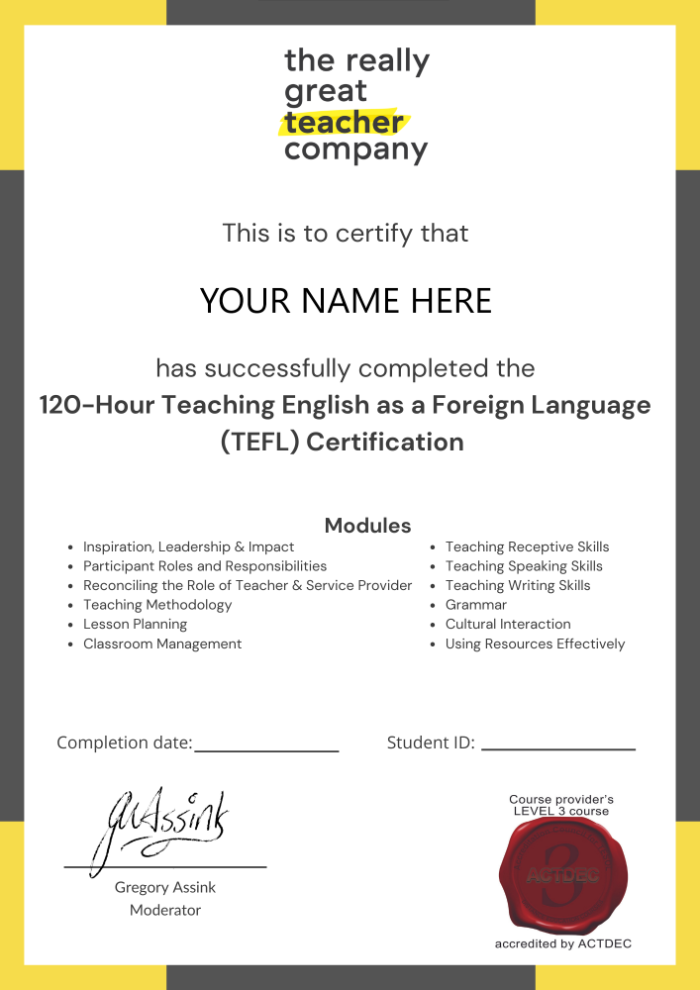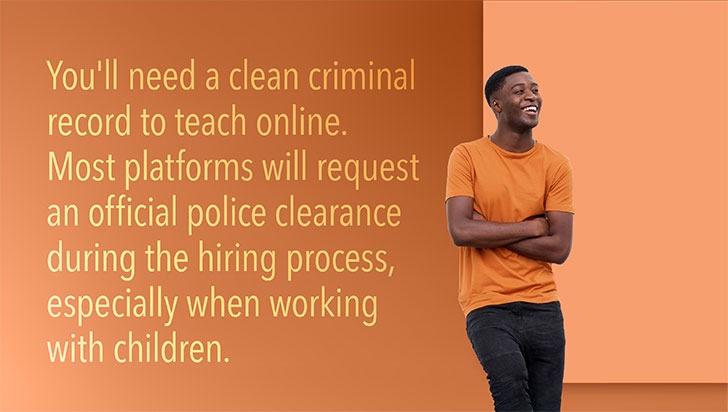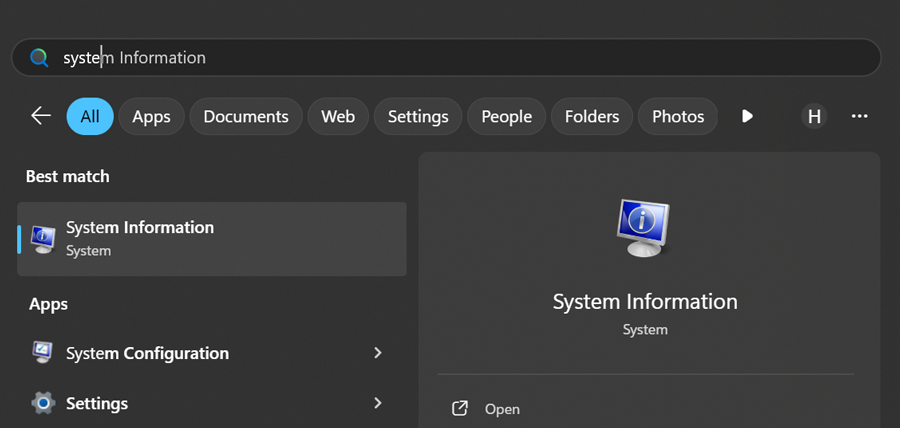You've graduated from university, but South Africa's job market is tighter than ever. That promising career? It might take years to materialize as your application vanishes into the graduate void.
But there's a growing career many overlook: online English teaching. The industry is growing fast — 14% annually — offering USD salaries and flexible, work-from-home (WFH) set-ups. Post-pandemic, virtual classrooms are now permanent, creating thousands of jobs filled from anywhere with a stable internet connection.
While countless generic guides exist on becoming an online English teacher, they rarely address unique South African challenges. This guide bridges that gap. It's a clear roadmap to transform your degree into a genuine, viable job within 6 weeks. It's what you need to know as a South African graduate.
Required Teaching Qualifications for South Africans
Before you start applying for online teaching jobs or planning your WFH set-up, here's what counts when it comes to getting hired.
01
A South African Degree or Diploma

To clear the first hurdle, you'll need a tertiary qualification — either a diploma or a degree from any recognized South African institution.
Here's what matters most:
- A diploma or degree. A national Diploma is usually the minimum standard, but a Degree presents more opportunities.
- Any field is valid. ESL platforms usually don't care what you studied, they only care that you studied. Your degree is mainly to meet visa or hiring requirements for the countries you'll be "virtually" teaching in. Whether it's a BA in Psychology or a BSc in Computer Science, both are valid. A teaching degree is always a bonus.
- Easy verification. Most platforms accept digital copies of your degree or official academic transcript.
- Your degree is recognized. Major South African universities are well-regarded internationally. Don't worry about not having a US or UK qualification — you're covered.
Do I really need a degree to start teaching online as a South African?
Short answer: Yes, for most jobs.
Established schools — particularly those with student bases in Asia — require it for visa compliance and hiring standards.
But there are a few exceptions. If you're currently studying or hold a TEFL qualification, you may be eligible to apply. But if you want consistent work and better pay, having a degree makes your life a whole lot easier.
02
120-hour TEFL certification
While a degree gets your foot in the door, a TEFL or TESOL certificate gets you hired. For many global schools, it's a minimum requirement, so most will reject you without one.
Our hiring data indicate that approximately 16% of South African applicants are rejected because their TEFL credentials don't meet the platform's requirements.

Here's what counts:
- 120-hour certification is the global standard: It's not a random number — many countries (like China, South Korea, Vietnam, Thailand, and UAE legally require it for visa eligibility. Anything under 120 hours is considered incomplete training and may hinder your ability to secure a job or visa.
- Avoid free or fast-track courses: If it's free or promises certification in "a few hours," that's a red flag. These courses often aren't accredited, don't include tutor feedback, and won't be accepted by recruiters. A legit TEFL should take 4–8 weeks to complete.
- Accreditation and verification matters: Ensure the certification provider offers verification services, as reputable platforms often require this verification. Keep digital copies (PDF's) of your qualifications.
- Practical skills: Beyond the basics, a TEFL equips you with effective teaching methods, lesson planning, and strategies for managing online classes. If all you're doing is multiple-choice quizzes, that's not enough.
No Global Standard = More Risk (and Scams)
Unlike degrees or diplomas, there's no single international body that sets the TEFL standards. Make sure you choose a course that's accredited, meets the 120-hour requirement, and gives you the practical skills you'll actually use to teach online. If the course lacks tutor support or accreditation, it is unlikely to help you secure a job.
The skills you learn will make your first months of teaching significantly easier and improve student retention rates.
The TEFL Course You Can Finish
Get TEFL-certified with our 120-hour online course designed with first-time teachers in mind:
- Internationally accredited (ACTDEC Level 3)
- Self-paced with real trainer support
- Just USD $9.90/month
I was skeptical about online TEFL courses at first, but this one surprised me. Even with my full university schedule, I completed it in 6 weeks. The practical lessons actually prepared me for real teaching situations, and the personalized trainer feedback gave me the confidence to handle my first online classes. Within weeks of certification, I secured my first teaching position.
Rob, A Really Great Teacher, Cape Town
03
Native-Level English Proficiency

You need to speak English fluently — usually at a C2 level (native or near-native) to teach online. You'll be assessed through demo lessons, interviews, intro videos, and even formal language tests.
Up to 30% of South African applicants are rejected due to their English proficiency.
Many South African graduates worry their accent will be a barrier. Globally, South African English is perceived as neutral and understandable.
Here's what matters:
- Clarity is everything: Most parents, especially across Asia, are paying for what they believe is "North American" English. You don't need an American accent to teach online, but your pronunciation must be clear, consistent, and easy to understand.
- Match ESL phonics: Listen carefully to how major platforms teach the alphabet sounds and pronunciation. Adjust your own speech to match — this is what parents are expecting.
- Nail Your Intro Video: This is your first impression. Speak slowly, smile, and avoid regional slang.
- Soften your accent: While being South African isn't a barrier, a heavy local accent can be. Your goal is to be universally understandable, especially for beginner students.
Pro tip: Record yourself reading a children's storybook. Play it back. Would a 6-year-old in China understand every word? If yes, you're ready!
Turn Your South African Background into a Strength
You've grown up in a country with 11 official languages where multilingualism is the norm. That's a strength, not a weakness, so highlight it in your application
Teaching English comes naturally to me as a South African. I've grown up in a place where navigating between languages is part of everyday life. English drives our business world. This helps me understand the challenges my students face when learning a new language, because I've lived it.
This shows cultural awareness, language empathy, and real-life experience—all things platforms (and parents) appreciate.
04
Teaching Experience
You don't need years of classroom experience to start teaching online. Most platforms want someone who can communicate clearly and keep students engaged.
No experience? That's normal. Most South African grads applying to these jobs start from scratch, too. What matters is how you present yourself in your intro video, interview, and demo lesson.
Here's how to approach it:
- Teaching = Communicating: If you've tutored, trained others, or volunteered with kids, you probably already have more experience than you think. Companies value these informal teaching activities because they show you can explain ideas and keep learners interested.
- Your demo video is your "experience": Show recruiters what they need to see. Can you explain clearly? Do you sound enthusiastic while teaching? Display your teaching style, skills, and student engagement.
- Experience requirements vary: Some companies have lower entry barriers but pay less. Others offer better rates but may require prior teaching experience and limit applicants by nationality. Always check the requirements before applying.
- Experience affects where you should start: If you're a brand-new teacher with no experience, start with schools with planned curriculums. If you have previous teaching experience, consider jumping straight into freelance teaching.
How to Gain Experience (Before You Get Hired)
- Volunteer with nonprofits.
- Record practice lessons and get feedback from TEFL trainers or peers.
- Join teaching groups online where you can practice with other new teachers.
Remember: You don't need to prove you're an experienced teacher — just show you can lead an engaging online lesson.
05
No Criminal Record

You'll need a clean criminal record to teach online. Most platforms will request an official police clearance during the hiring process, especially when working with children.
In South Africa, that means applying for a Police Clearance Certificate (PCC) through your local police station. The certificate is issued by the SAPS Criminal Record and Crime Scene Management Unit.
Here's what you'll need:
- Full set of fingerprints, taken at a police station
- Completed application form
- Certified copy of your ID or passport
- Payment (R180)
Processing typically takes about 15 working days; however, delivery can take up to six weeks. Start early to avoid delays that could cost you opportunities.
Your Tech Setup (South African Edition)
Teaching online means your home is your classroom. Your tech setup will be evaluated based on audio, video, background, and internet connection. And in South Africa, loadshedding, patchy internet, and tight budgets make things trickier.
01
Minimum Laptop or PC Specs
You don't need a gaming rig, but you do need a computer that won't crash during a lesson. Tablets, Chromebooks, and phones aren't acceptable devices for teaching — most teaching platforms require software that only runs on Windows or macOS, and you often need to share your screen in class.
What to look for in a laptop:
- Processor: Intel Core i5 (or Apple M1/M2/M3).
- RAM: 8GB minimum, 16GB is better.
- Storage: 256GB SSD minimum.
- Operating System: Windows 10+ or macOS 10.15+.
- Webcam: Built-in is fine; 2MP or higher resolution.
Check your System Specs:

- On Windows 11, type "System Info" in the search bar.
- On Mac, click the Apple logo and choose "About This Mac."
What will it cost?
Budget R8,000–13,000 for a decent, new laptop. Models to look for in that range:
- Acer Aspire
- Lenovo Ideapad
- Dell Inspiron
- HP ProBook
02
Internet That Works for Teaching Online
Your internet connection is everything. A 30-minute video class uses about 80–200Mb. A stable fiber connection is expected because it's reliable, fast, and built for live video.
What you need:
- Minimum speed: 20Mbps upload & download, with a ping below 20ms.
- Connection type: Wired LAN (Ethernet cable directly to the router), not Wi-Fi.
- Test: Run speed tests during the exact hours you'll teach. 20Mbps is enough for HD video.
- Connection backup: Mobile hotspot or fixed LTE (Telkom, Vodacom, MTN).
Plugging an Ethernet cable into a wireless LTE router doesn't make it a wired connection. You're still running on mobile signal, which depends on network congestion and signal strength. Expect slower speeds during peak hours.
Tips for Boosting Stability:
- Always use a wired Ethernet cable (even on fiber).
- Position your router away from walls and other electronics.
- Avoid teaching during loadshedding without a backup plan.
03
Noise-Canceling Headset with Microphone
Clear audio is a must. Students clock out if they can't hear you well.
For best results:
- Noise-cancelling to block background sounds.
- Wired headsets only — Bluetooth can drop.
- Built-in mic for clear, consistent voice.
- Recommended: Logitech H151 or H340.
04
Loadshedding Strategies

No power equals no Wi-Fi, no class, and no paycheck.
If you're teaching online in South Africa, you must make all preparations to ensure you stay connected during loadshedding. One missed class can hurt your ratings — and your income. But with the right setup, you can stay online no matter what Eskom throws at you.
What you'll need:
- UPS (Uninterruptible Power Supply): Opt for at least 2000VA capacity to keep your router and laptop running for 2–3 hours during an outage. R2,000–3,000.
- Inverter: A solid alternative to a UPS, especially if you want to power more devices or extend your uptime. R3,500.
- Power bank: Keeps your phone charged, so you can hotspot if your primary connection fails. R300–R600.
- Mobile data bundle: Essential backup if your internet goes down.
- Monitor loadshedding: Use the ESP Loadshedding App to plan. It's not always possible to avoid classes during loadshedding, but keeping an eye on the schedule helps you prepare by keeping devices charged and close at hand for a seamless changeover.
- Emergency relocation plan: If you're dealing with extended power outages, buddy up with a friend or relative who's on a different power grid and relocate to their place to keep working.
05
Your Teaching Space
It doesn't have to be fancy, but you do need a dedicated space that represents a virtual classroom on camera. Your environment has a direct impact on your professionalism and booking rates.
Tips for any space:
- Small space solutions: Create a dedicated "teaching corner" with a folding desk that can be packed away between classes (R600–900).
- Watch your background: Beds, kids, and clutter in the frame come across as unprofessional. Use a plain wall, curtain, or room divider to create a clean, private backdrop.
- Lighting that works: Position yourself facing a window for natural light — never sit with a window behind you. No window? A desk lamp or affordable ring light works just fine!
- Camera height: Position your webcam at eye level so you're not looking up or down. It keeps your posture natural and helps you look more professional on screen.
- Noise control: Hard floors create an echo. Add cushions, blankets, or a rug around your space to absorb sound.
You don't need a perfect setup — just one that shows you're focused, reliable, and ready to teach.
Tech Checklist Budget for South African Online Teachers
Core Tech Setup (Essentials)
| Item | Budget |
|---|---|
| Laptop or PC (i5, 8GB RAM, 256GB SSD) | R8,000–R13,000 (one-off) |
| Uncapped Fiber Internet (25 Mbps+ with LAN cable) | R500–R1,500 / month |
| Noise-Cancelling Headset | R300–R600 |
| UPS (2000VA) | R2,000–R3,000 |
| Power Bank | R300–R600 |
| Mobile Data Bundle (backup internet) | R100+ / month |
| Ethernet Cable | R50–R100 |
Estimated Total (one-off setup): R10,650 – R17,300
Monthly Expenses: R600–R1,600/month for internet + data
Optional Add-Ons
| Item | Budget |
|---|---|
| Inverter (alternative to UPS) | R3,500 (battery not included) |
| Folding Desk | R600–R900 |
| Desk Lamp / Ring Light | R200–R500 |
| Room Divider | R300–R800 |
Finding Work - The South African Strategy
As a graduate, you've got the degree, but the job market isn't delivering. Online English teaching is a real alternative, but how do you break in?
4 Teaching Career Pathways for South African Graduates
01
Online ESL Companies
You apply and are hired as an independent contractor, where you train and teach ready-made lessons to assigned students. Some don't require a degree or teaching background, but many won't hire non-native speakers — and that sometimes includes South Africans.
- Best for: New grads who want a structured setup.
- Pay range: $6 – 15 USD/hour.
- Requirements: Degree, TEFL certification, clean background check.
Pros
- Ready-made lessons.
- Student bookings are handled for you.
- Consistent schedule.
- Technical support.
Cons
- Lower pay ceiling.
- No control over schedule or style.
- Many don't hire South Africans.
- Might demand job exclusivity.
Grad Tip: Great for building experience. Their strict curriculum helps you develop classroom management skills that transfer to higher-paying opportunities later. Apply at a few companies, as they implement hiring freezes when they have too many teachers and don't let applicants know.
02
Online Marketplaces
You're a teaching Uber—set up a profile, choose your hourly rate, and wait for students to book you. While the flexibility sounds impressive, it often means spending time online hoping for bookings that don't happen — or worse, teaching free trial lessons that earn you no income. The platforms take a commission and up to 100% for those trial lessons.
- Best for: Graduates with strong self-marketing skills and financial cushion.
- Pay range: Technically $8–25 USD/hour, but realistically $5–8 USD/hour after fees (15–33% for beginners).
- Requirements: Varies by platform—some require only English fluency.
Pros
- Flexible hours and subject choice.
- Set your own rates (increase as you gain reputation).
- Lower entry barriers for some platforms.
- Often open to South Africans.
Cons
- High competition (need standout profile).
- Platform fees can cut into income.
- No guaranteed hours or steady income.
- Time spent marketing yourself and profile optimization (unpaid hours).
- Some parents may expect teachers to have a certain appearance.
Grad Tip: A solid intro video can boost your chances. If you studied something like business, highlight it as Business English lessons let you charge more than conversation.
03
Freelance Independent Teaching
You're ready to take the leap into entrepreneurship. You're the business owner creating your own teaching platform from scratch. You call the shots on who you teach, what you charge, and how you recruit students to your brand. Highest Risk = Greatest Reward.
- Best for: Experienced teachers who feel confident going out on their own.
- Pay range: $15–50 USD/hour (you keep everything).
- Requirements: Self-discipline, business acumen, digital marketing know-how.
Pros
- Build your own personal brand.
- Highest earning potential.
- Complete curriculum freedom.
- Direct relationships with students.
Cons
- Slow initial growth.
- No steady income.
- You're the entire operation: marketing, admin, and tech.
- Need business skills beyond teaching ability.
Grad Tip: The more niche you go, the easier it is to stand out. Focus on a specialty (like exam prep, business English, or kids) to attract students who value your expertise—and charge accordingly.
04
The Really Great Teacher Company
A global teacher management company that bridges traditional platforms and independent teaching. You get the structure of a teaching platform and the freedom to freelance on the side.
- Best for: Grads seeking stability with growth potential.
- Pay range: $6–8 USD/hour with guaranteed weekly hours (20–30 hours/week).
- Requirements: Degree, TEFL certification.
Pros
- No need to find your own students.
- All lesson materials are typically provided.
- South African-friendly (understands local challenges).
- 24/7 tech support and training.
- Personal and professional development.
- Not exclusive—you can freelance, too.
Cons
- Lower starting rate than some platforms.
- Need to follow specific teaching methodologies.
- Contract commitments for minimum teaching hours.
Why it works:

The Really Great Teacher Company offers stability – a valuable asset for new graduates. The guaranteed hours create a reliable income foundation while you develop your teaching skills and explore other opportunities. This safety net gives you space to develop your teaching style while getting comfortable on camera.
Some teachers also freelance or use marketplaces, stacking multiple income streams while relying on us for their base income. It's a great way to build experience and stay financially stable.
With China gradually reopening its online education market in 2025, hundreds of new teaching positions are becoming available online.
How to Get Hired
If you're a South African grad, knowing how to present yourself at every step really matters.
Choose Platforms That Work for You
Not every platform is built with South Africans in mind. Before applying, check for:
- Payments: Can you get paid via PayPal, Payoneer, or local bank transfer?
- Time zone fit: Most teaching jobs are in Asia, so expect peak hours between 12–4pm (SAST) on weekdays. European platforms suit evenings (7–10pm).
- Technical requirements: Ensure your internet and power setup meet their standards.
- Nationality: If a job ad specifies "UK, US, Canada, Australia only," they are unlikely to consider South African applicants. Skip it! Choose ones that are merit-based— that value your education and skills.
- Avoid ESL Scams: Be cautious of fake job phishing sites, especially if they ask for any kind of upfront payment to work. We've written a guide to avoid these.
At The Really Great Teacher Company, we're in your corner and provide full support, training, and guidance.
Interviewing Process
01
Make Your CV Perfect
With thousands of applicants, only around 14% reach the interview stage. Your CV must speak directly to what recruiters are looking for. Here's how to avoid the void.
- Keep it clear and concise: One-page, clear headings, bullet points. Skip fancy designs.
- Match the job post: Use keywords from the ad (like "neutral accent" or "engaging lessons") so ATS software picks up the keywords in your CV.
- Use plain English: Aim for a Grade 8 reading level – use the Hemingway App to check it.
- Show your skills: Include any teaching, tutoring, mentoring, or coaching—even volunteer work. Highlight your communication, tech skills, and classroom energy.
- Don't skip the basics: Add your degree, TEFL/TESOL certification, tech setup, and language skills.
- Start with a punchy intro: A 2–3 line personal statement at the top helps recruiters understand you at a glance. Example: "Digital native turned educator. I create engaging online lessons that help students build confidence and breakthrough barriers"
Want the full breakdown? Read our complete resume guide.
02
Enticing Cover Letter
Your cover letter must capture the recruiter's attention. Do this:
- Ditch the generic intros: Skip "To whom it may concern" and make it personal. Research the company and show why you want THIS job.
- Tell your story: In 150–200 words, share what makes you unique. Connect your background to their needs.
- Solve their problems: Show you understand their challenges – they may need teachers who can boost student retention or handle specific student groups.
- Be scannable: Keep paragraphs to 3–4 sentences. Use the STAR method (Situation, Task, Action, Result) for your teaching wins.
- Nail your opener: Start with something that grabs attention. Example: "When I transformed my reluctant teenage students into confident speakers through K-pop lyrics, I discovered my teaching superpower."
- End with confidence: Close with "I'm excited to bring my [unique strength] to your team and help your students achieve their language goals."
- Triple-check everything: Typos in a language teacher's application? That's an instant rejection.
Want more tips? Download our complete cover letter template.
03
Compelling Teacher Intro Video
You've got 60 seconds to tell the school who you are and why you want this job.
- Film like a pro: Use landscape mode and put your camera at eye level—no one wants to look up your nose!
- Dress professionally: Demonstrate your cultural awareness by dressing respectfully for teaching students, both children and adults, from conservative countries all around the world.
- Hook them fast: Open with a real smile and friendly wave. Something simple works best: "Hey there! I'm Jack from Cape Town. I've been teaching English for 5 years and hold a 120-hour TEFL certificate."
- Know your audience: Tailor your message—schools want qualifications and teaching skills; parents want to know their kids will be safe and engaged; adult learners want practical, flexible instruction.
- Speak clearly: Use your "teacher voice"—not too fast, neutral accent, and simple language that non-native speakers can understand easily.
- Show passion: Recruiters want to see your enthusiasm. Explain what drives you as a teacher: "I love teaching because [genuine reason]. My teaching style focuses on [your approach]."
- End strong: Finish your video with confidence—tell them exactly why you'd be great for their team.
Check out our complete filming guide with scripts to get hired.
04
Nail Your Demo Interview
This is where all your prep pays off. Here's how to shine online:
- Research the company: Check their website, teaching style, and student demographic. Be specific as to why you want to work there.
- Prep for common questions: Practice answers to: "Why did you become a teacher?", "How do you motivate students online?" and "How would you help a shy child?"
- Share actual results: Don't just claim you're a good teacher—prove it with stories. "When facing a disengaged student, I created personalized games that increased their participation by 30%."
- Demonstrate passion: Schools want teachers who genuinely care about student success. Share what excites you about helping others learn English.
- Have questions ready: When they ask if you have questions, be prepared. Ask about their teaching philosophy, support for teachers, or growth opportunities.
- Be authentic: Remember that schools look for more than qualifications—they want teachers whose personality and approach match their values.
Want more interview confidence? Read our complete question guide with answer examples.
30-Day Action Plan: Graduate to Global Teacher
Here's your 1-month blueprint to launch your online teaching career:
- Get paperwork sorted: Sign up for a 120-hour TEFL course today—you can start learning immediately while gathering your degree certificates. Apply for police clearance now, as it can take weeks.
- Research your targets: Make a shortlist of 5 platforms to apply to first. Join South African TEFL Facebook communities—members often share insider tips and referrals.
- Create your teaching brand: Draft a concise, teaching-focused CV and a friendly cover letter that you can reuse across various platforms. Take a professional-looking photo (without filters) and record your intro video, showcasing your personality and teaching style.
- Set up your teaching space: Perform a quick tech check and make any necessary upgrades. Get a reliable headset, ensure good lighting, and consider UPS to keep your internet alive during lessons.
- Start applying: Block out time to carefully complete applications. Customize each one slightly to show you're not mass-applying. Keep track of where you've applied and your login details.
- Sort your finances: Set up PayPal and Payoneer accounts for international payments. Create a simple budget for startup costs and monthly expenses so you're prepared for the initial lean period.
- Keep learning: While waiting for responses, finish your TEFL course, watch teaching demos on YouTube, and practice with friends or family. Gather basic teaching props if you'll be teaching kids. Level up your online teaching skills through the Inspire Academy - from the foundations of teaching online to teaching mastery.
By the end of the month, you'll have solid foundations in place. From there, it's just about acing those interviews and welcoming your first students to your virtual classroom!
![Teaching Online English from South Africa: Graduate Career Guide [2025]](/images/banner/s_english-south-africa-grad-2.jpg)